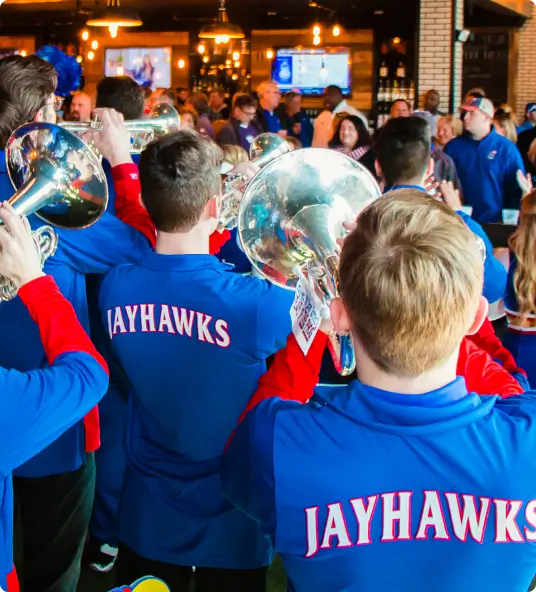Jayhawks in leadership positions are everywhere you look, including through the Jayhawk Career Network. KU Alumni, in partnership with SumnerOne, is highlighting Jayhawk leaders who are models for others in their industries with our “Copy the Leader” program.
What do you do in your work?
I currently serve as the CRA Program Manager in the Consumer Affairs Unit at the Federal Reserve Bank of St. Louis. The majority of my work centers around managing our Community Reinvestment Act (CRA) examination function of state-member banks, conducting internal/external training on the CRA, and managing process improvement projects within our business line.
What are the qualities of a good leader?
There are obvious answers like strong communication skills and organizational savvy, but one thing I have seen really good leaders do is value everyone, equally. Whether she or he serves on the facilities staff, is the Executive Vice President, serves food in the cafeteria, leads the Human Resources function, or anything in between, people have value simply because they are people. They are wives and husbands, daughters and sons, friends and neighbors, and most importantly, Image-Bearers with innate value. The best leaders are those who not just see, but institutionalize the value of everyone who works for, with, and around them.
How do you practice leadership at your job?
Early in my career, I had great managers who gave me opportunities to display knowledge and skillset, which ultimately opened up a lot of doors for me. Since transitioning into a leadership role, I’ve tried, and continue to try, to do the same for those on my team. I think there is a natural tendency for some to hoard opportunities for themselves, but I have found that the more opportunities you create for others the better the outcomes are simply because no one knows everything about everything. Additionally, and maybe more importantly, being intentional about supporting others’ professional development creates stronger personal and organizational ties, and hopefully, encourages people to always give their best effort.
What makes a team or group successful?
As someone who has a bit of a perfectionist mindset, I think the best teams start projects understanding that failure is a possibility and don’t run from that. I think there have been times where fear of failure kept me from taking professional and personal risks, but that unfortunately hinders one’s opportunity to grow. So as of late, my hope is that the teams I lead/am a part of understand that trying something and it not making it to implementation is okay because there are real benefits to simply going through the idea creation, development, and proposal phase.
How can leaders in your industry help their organizations adapt to change?
Lately, I’ve been thinking a lot about messaging and brand management. In a time where there is so much information, so much consumer/custom choice, and frankly, so much skepticism, how institutions communicate clearly and concisely the rationale behind their work and/or decisions I think matters a lot. Doing so, I believe, will ensure that as change occurs, internal and external stakeholders will have the information needed to adjust and ultimately, move with the organization instead of moving in spite of the organization.
Want to receive alumni and career stories like this in your inbox? Subscribe to the Water Cooler, a monthly career newsletter for alumni, students and friends. It includes upcoming events, featured mentors, stories about alumni and students, jobs and more.




